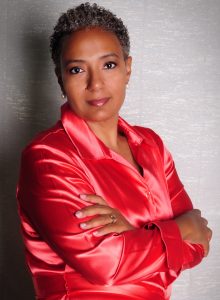MLK Unsung Heroes Award
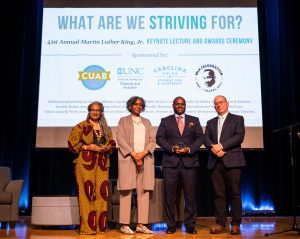
MLK Unsung Hero Award
Nomination Form
The MLK Unsung Hero Awards are annually awarded to two individual UNC staff, faculty, community partners, or corporate affiliates who have exemplified a steadfast commitment to inclusion. Through their everyday work and advocacy, these awardees have made significant contributions to social justice, equity and diversity, and have made a positive difference in the lives of others at Carolina.
Award recipients exemplify a steadfast commitment to inclusion, significant contributions to social justice, a positive impact on Carolina’s community, collaborative spirit and community-building and a commitment to upholding the dream of Dr. King. Nominees should meet the criteria described above.
The time frame for nominations will be from October 9, 2023 through November 5, 2023.
Access the nomination form here: go.unc.edu/UnsungHero2024
Past Unsung Hero Award Winners
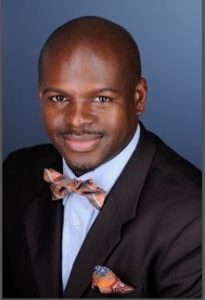 Dr. Nathan E. Thomas, III
Dr. Nathan E. Thomas, III
Dr. Emanuel Nathan “Nate” Thomas, III joined the School of Medicine (SOM) in March 2020, following the tragic passing of our inaugural Vice Dean for Diversity, Equity and Inclusion (DEI). He immediately faced the challenge of leading the School of Medicine through the early days of the pandemic and multiple instances of racially motivated violence across the country while acclimating to a new organization in a virtual environment. His progress over the year and half since he joined UNC has been remarkable. Shortly after his arrival, he held a school-wide town hall with a panel of underrepresented faculty to provide space for processing and grieving considering national events. He followed this session with the development of a DEI Framework, which provided a path forward to elevating and enhancing DEI efforts across the School of Medicine. Dr. Thomas has done remarkable work developing and growing pipeline programs to enhance diversity among our learners and faculty. A few examples include Carolina MED Excel Program, STAHR Mentoring Program, and Rising Star Program. These programs and initiatives highlight Dr. Thomas’ commitment to diversity, equity, inclusion and to strengthening our School of Medicine culture. He seeks to broaden our community ensuring members’ voices and experiences represent our state, which is essential to fulfilling our missions in research, education and clinical care. Early signs of success are evident in the demographic composition of our incoming classes, enhanced recruitment practices for new faculty, and the launch of the pipeline programs that his team developed over the last year and half.
Kellye Whitaker
Kellye has a unique gift of building community among people who otherwise feel excluded. She builds partnerships with community members from minoritized backgrounds who may not initially see UNC as a place for them. Kellye has launched UNC’s first effort to work directly with economically distressed communities and businesses in South Carolina. Since 2019, Kellye has provided direct technical advice to entrepreneur’s access credit, managed business technical assistance projects, and supervised graduate students from UNC Chapel Hill as well as from NC State, Clemson and College of Charleston. In particular, she recently convened a new cohort of entrepreneurs, all in the Lowcountry region of South Carolina and all with roots in the Gullah-Geechee community. While she works with each client on specific business challenges, her work also addresses the persistent racism faced by Black entrepreneurs, particularly in the Lowcountry. Beyond her full-time job at UNC providing direct technical assistance to small, mostly minority-owned businesses, Kellye remains incredibly busy with volunteer work for a plethora of organizations that are working on issues related to social justice, equity and inclusion. This year Kellye was appointed to the Colleton County Planning Commission, Palmetto Goodwill Excel Center Board of Directors, and the Charleston Chamber of Commerce One Region Strategic Thinking Group. In addition, she volunteers her time as a business coach for Lowcountry Local First and HOPE Financial Training Center, and as a grant reviewer for the Coastal Community Foundation and the Small Business Administration.
Related Coverage:
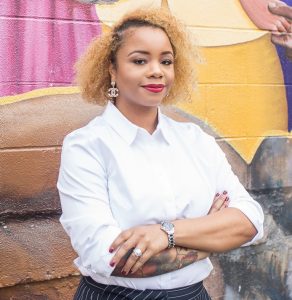
Dr. Khalilah R. Johnson
Dr. Khalilah R. Johnson is an Assistant Professor in the Division of Occupational Science and Occupational Therapy at the University of North Carolina School of Medicine. She also serves as an affiliate research faculty member at the Virginia Commonwealth University Center for Cultural Experiences in Prevention in Richmond, Virginia.
Dr. Khalilah Johnson is whole-heartedly dedicated to the diversity, equity and inclusion of the Division of OS and OT. Even beyond the program, she is a powerful force for the entire department of Allied Health and the broader UNC campus. Dr. Johnson serves on the National Black Occupational Therapy Caucus, is a board member for the Coalition of Occupational Therapy Advocates for Diversity and serves as the Advocacy and Policy Coordinator for the Developmental Disabilities Special Interest Section for AOTA. She serves on panels, advocates for diversity on social media platforms, and is conducting ongoing research to what degree participation and equity are given to racially marginalized folks living with developmental and intellectual disabilities. Dr. Johnson’s continual commitment and dedication to inclusion and diversity extend far beyond her job title. Her motivation and passion will exude in whatever setting she finds herself in and with whoever lends her a microphone. Her professional dedication to rigorous study and research on the matter is evident in every community meeting, class lecture, and discussion Dr. Johnson is a part of. She exemplifies steadfast commitment to inclusion and diversity, but even more, she teaches others how to do the same with grace, intellect, and perseverance.
Broadly, Dr. Johnson’s research focuses on health service access and participation with racially minoritized adults with intellectual and developmental disabilities, as well as developing culturally affirming interventions that support their community engagement. As an academic activist, she is involved in national and local initiatives aimed to address structural racism in occupational therapy practice, pathways to occupational therapy education for minoritized students, and racial equity in occupational science and occupational therapy curricula. Many occupational therapists and occupational scientists have celebrated the publication of From racialized think-pieces to anti-racism praxis in our science, practice, and education as one of the first and only articles in OS literature thus far that has focused on racism, a significant gap in OS literature. This article has been chosen for the Coalition of Occupation Therapy Advocates for Diversity’s Book+ Club discussion. Additionally, Dr. Johnson was the first-ever African American PhD student in OS at UNC.
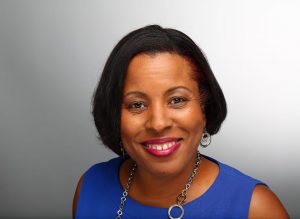
Dr. Trevy McDonald
Dr. Trevy McDonald is the Julian Scheer Term Associate Professor in the Hussman School of Journalism and Media and serves as the school’s inaugural Director of Diversity, Equity and Inclusion. She is passionate about diversity and media. Among the many courses she teaches, her favorite to teach is a course entitled Diversity and Communication, which explores representations, roles and responsibilities with regards to minoritized groups and mainstream American media.
In the short time that Trevy has been Director of Diversity for the Journalism school, she has made huge strides to address many of the D&I issues present within the school. She has reached out to several current and former students for guidance on how she should approach the first of its kind role for the journalism school. Those issues include recruiting and obtaining a more diverse student and faculty makeup. A leader that seeks input from others, even with the level of expertise she has are great qualities for a Director of such importance. Trevy has been a mentor for several Black students during her tenure, a testament to her welcoming nature. She made everyone feel comfortable and welcome in spaces where they were oftentimes one of few. Taking on a role of such magnitude in the midst of a racial reckoning across the US exemplifies bravery. So many speak about fighting for change, but this is how change is created, by being on the front lines. By fighting for the people who cannot be in the room. Trevy is the gold standard for what a professor and mentor should be.
Trevy has been at Carolina since 2010 and has worked tirelessly, often without recognition, to raise the profile of DEI issues and to empower countless students through her teaching, creative activity, and service. She is involved with associations serving Black journalists at multiple levels: National Association of Black Journalists (NABJ), Triangle Association of Black Journalists (TABJ), and Carolina Association of Black Journalists (CABJ, our school’s student chapter of the national organization, which Dr. McDonald advises). She also serves as advisor to the newly formed Carolina Association of Latinx Journalists.
Additionally, Trevy is the author of the novels, Round ‘Bout Midnight and Time Will Tell, the co-editor of two scholarly anthologies, Nature of a Sistuh: Black Women’s Lived Experiences in Contemporary Culture and Building Diverse Communities: Applications of Communication Research and has contributed to numerous anthologies and publications. Her novel Round Bout Midnight received the 2019 Outstanding Book Award from the National Association of Black Journalists.
 Dr. Afroz Taj
Dr. Afroz Taj
Dr. Afroz Taj is a professor in the Department of Asian Studies and has dedicated his life to inclusion through his teaching, research, service, publicly engaged scholarship and his personal life. Since coming to UNC-Chapel Hill in 1995, he has created new courses, advised diverse student groups, served as departmental Diversity Liaison, participated in University initiatives, organized events and has been involved in many other inclusion initiatives. He is firmly committed to accessible course design and has demonstrated a long-term commitment to inclusion in the UNC Summer in India study abroad program that he has directed annually for the past 23 years.
During this intensive six-week immersion-based study abroad program in India, students often encounter discrimination based on race, gender, and ability, and Dr. Taj has developed many strategies and teaching tools to help students respond to these problems in a culturally appropriate manner. Working with Carolina Performing Arts as their first Curatorial Fellow in 2015-2016, Professor Taj designed an innovative program of musical events based on the concept of “confluences” of communities and cultures. In his long career at UNC, Professor Taj has impacted tens of thousands of students, colleagues and community allies in many profound ways. Dr. Taj has challenged students to understand discourses of hate and prejudice as well as the strategies we can all use to counter them. Like Dr. Martin Luther King Jr., Professor Afroz Taj has been deeply inspired by Mahatma Gandhi. As a member of a minority community growing up in India, he faced discrimination and violence at both the personal and national levels. But these challenges taught him to meet violence with peace, hatred with love, discrimination with compassion.
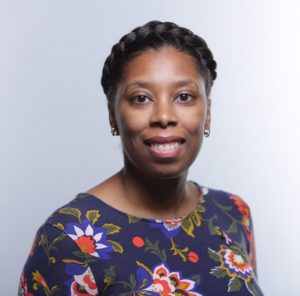 Dawna Jones
Dawna Jones
Dawna Jones is the epitome of a student-centered higher education and student affairs professional. She firmly believes that everyone has the right to pursue a higher education and works tirelessly breaking down barriers that stand in the way of students achieving their degrees. Whether it’s mentoring a group of Carolina Covenant Scholars, teaching a Thrive@Carolina course, attending students’ events to show support, participating in the Racial Literacies Seminar, serving on the Employee Forum, attending different cultural events, and more, Dawna is an amazing citizen of UNC. She believes in Carolina’s mission and makes it her life’s purpose to positively affect those around her. In 2018, Jones was nominated by her peers to chair the Carolina Black Caucus, one of the University’s oldest affinity groups, created to engage, empower, celebrate, and advocate for Black faculty, staff, and students.
She consistently uses her voice to ensure that issues of diversity are factored into the institution’s strategies and part of everyone’s professional growth plan. Jones is often the institution’s conscience for diversity, the one who prods her colleagues to be vigilant about providing respect, appreciation, and inclusion to everyone. In addition to Dawna’s position in supporting all students at UNC and chairing the Carolina Black Caucus, Dawna is an active member of the Chapel Hill NAACP. Given the numerous challenges that happened last year with the removal of the Silent Sam, Dawna has been able to support her various constituencies in a highly professional way with grace and respect.
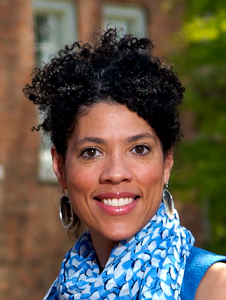 Dr. Amy Locklear Hertel
Dr. Amy Locklear Hertel
Dr. Amy Locklear Hertel’s tireless work toward ensuring the Carolina experience is an inclusive one for all is why she was selected as this year’s recipient of our Unsung Hero award. Well before she began her current role as the Chancellor’s chief of staff, Amy was an undergraduate student here focused on making a positive impact.
As a member of the Lumbee and Coharie tribes, Amy was president of the Carolina Indian Circle and founder of the Alpha Pi Omega sorority, leaving a legacy for other American Indian females. She later increased the profile and impact of the American Indian Center as its director and provided context for UNC’s history as a co-chair of the Chancellor’s Task Force.
In this time of change, demographic growth of the traditionally underrepresented in North Carolina as well as the nation and the upward trend in women’s empowerment, she embodies the spirit of this award and provides, through her service, vision, and action as well as the qualities of endurance, intellect, compassion that places her alongside others as a true role model not only for other women, but for her community as well.
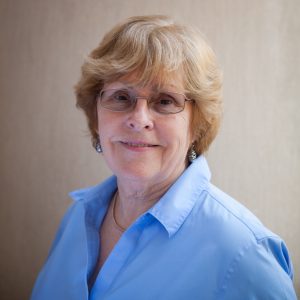 Jan Yopp
Jan Yopp
Jan Johnson Yopp is a professor in the School of Media and Journalism and dean of Summer School for Academic Affairs. Throughout her years at UNC-Chapel Hill, she has shown her passion for student success and, as a result, for initiatives that ensure accessibility and affordability for all students as well as recruitment and retention.
As a professor in the MJ School, she has been a co-adviser to the student organization, the Carolina Association of Black Journalists, since its inception 26 years ago. She was instrumental in creating the Chuck Stone Program for Diversity in Media and Education, an intensive summer workshop for high school students to introduce –and recruit—them to journalism and to Carolina. Twenty-one Chuck Stone scholars are current students here. Dean Yopp teaches in the four-day workshop that is modeled on the multicultural Rainbow Institute that she and the late Professor Chuck Stone co-directed in the early 1990s.
Under her leadership as dean, Summer School has supported the development of courses to help students thrive at Carolina and has increased its contribution to programs such as Summer Bridge and Chancellors Science Scholars. She has built successful partnerships to launch new summer transition programs for incoming first-year and transfer students. These programs especially benefit nontraditional, underrepresented, veteran and first-generation students as they begin their academic careers at Carolina. One partnership program, housed in Diversity and Inclusion, for example, recruits rising high school seniors to campus to take a summer course and live on campus. Today 26 Uplift Plus students from the program’s first four years are UNC-Chapel Hill students.
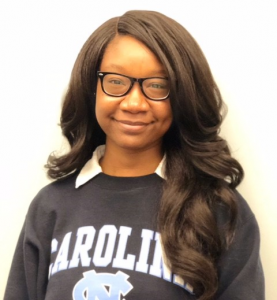 Erica Wallace
Erica Wallace
Since 2015, Erica Wallace has served as the Coordinator for Peer Mentoring and Engagement in the Center for Student Success and Academic Counseling here at UNC. She is a native of Charlotte, North Carolina and has earned degrees from Davidson College and Clemson University and is current working on her doctorate at the University of North Carolina at Greensboro. In her role here at Carolina, she actively engages with students involved in the Minority Advisory Program, Carolina Covenant Peer Mentoring Program, and Carolina Student Transfer Excellence Program (C-STEP). The goal of these programs is to assist first-year and transfer students’ transition into the Carolina community through the support of peer mentors. Because she believes in the power of positive peer influence and cultivating a legacy of excellence, Erica works in collaboration with a dynamic graduate and undergraduate student staff to create an environment where students of color, students from low-income backgrounds, and transfer students feel supported and valued. She endeavors to be an educator who recognizes and cultivates students’ potential, a mentor who is supportive and trustworthy, and an advocate who encourages and implements change while never accepting the status quo.
Erica likes to joke that there is the job she is paid to do and the job she actually does. In addition to managing the three peer mentoring programs and interacting with their participants, Erica is the current chair of the Womxn of Worth Advisory Board. The mission of the Womxn of Worth Initiative is to create and sustain a community for womxn of color and womxn for identify as members of underrepresented racial and ethnic populations that will promote academic excellence, holistic student success and wellness, identity development, and sisterhood. This is a collaborative campus effort involving undergraduate students, graduate students, and faculty and staff from various departments that Erica started with 2 former colleagues in Carolina Housing in 2016. Living with the multiple marginality of being a woman of color can feel like being an outsider-within, both invisible and hypervisible. Erica recognizes that in order for a campus, a community, and a society to truly be inclusive, you have to make space for those located in the margin and to create spaces of, to borrow a phrase from bell hooks, “radical openness and possibility.” This is what she works toward, collectively through the programs and individually with the students entrusted in her care. Making space for each student she encounters to be seen as a priority, to be heard loud and clear, and to just be their authentic selves. Erica is proud to be a part of the Carolina community to assist students in their development as scholars and human beings and to continuously work toward an inclusive and enlightened Carolina.
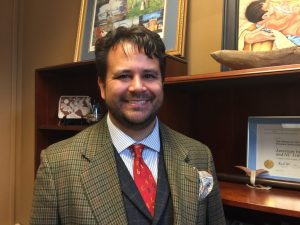 Benjamin Frey
Benjamin Frey
In his “America’s Threatened Languages” course, American Studies Professor Benjamin Frey encourages students to apply real world social situations to better understand community development. Dr. Frey also applies his mastery of linguistics in the campus-wide “Cherokee Coffee Hour,” which he initiated in 2013 to help revitalize interest in Cherokee language.
For his work, Dr. Frey has been the recipient of the Carolina Postdoctoral Fellowship for Faculty Diversity and been recognized for his commitment to service from the Office of Postdoctoral Affairs.
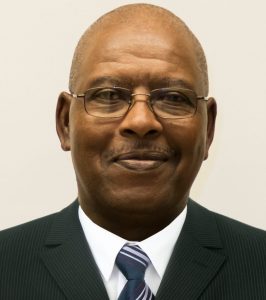 Franklin Seymore
Franklin Seymore
A Zone Manager and valued member of the UNC Housekeeping team, Mr. Seymore has worked diligently with staff to appreciate diversity, build trust and an understanding of workplace expectations. A positive influence and calming force, he has been a bridge builder who encourages connections, promotion of understanding of others, and recognition of commonalities amongst his co-workers while reminding them to consider other points of view.
Mr. Seymore is a veteran that served in the United States Air Force as a Security Police officer. He enjoys volunteer work at local rest homes, assisting senior citizens.
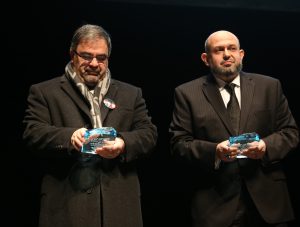 Namee Barakat and Mohammad Abu-Salha
Namee Barakat and Mohammad Abu-Salha
Namee Barakat, father of Deah Barakat, and Mohammad Abu-Salha, father of Yusor and Razan Abu-Salha, accepted the Unsung Hero Award on behalf of their slain children, Deah Barakat and Yusor Abu-Salha. A Memorial Award was established by UNC Chapel Hill and the Dental Foundation of North Carolina (DFNC) in their memory. The award goes towards supporting a student or group of students at the UNC School of Dentistry who plan a service project locally, nationally or internationally – an endeavor that Barakat and Abu-Salha devoted themselves to regularly with their humanitarian work.
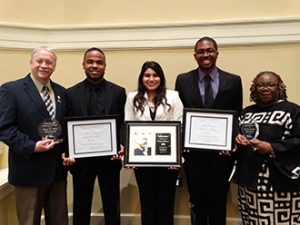 Larry Hicks and Tiane Mitchell Gordon
Larry Hicks and Tiane Mitchell Gordon
Tiane Mitchell Gordon is Founder and Principal of Square One, a consulting practice with subject matter expertise in diversity and inclusion from a theoretical and operational perspective. She has worked with D&I as the Diversity Expert-in-Residence—consulting with staff and students enrolled in the Cultural Competence Leadership Institute. She has had a career-long history of developing effective partnerships and strategic alliances in for profit and not-for-profit organizations. Ms. Mitchell Gordon’s last corporate position was as Senior Vice President and Chief Diversity Officer for AOL, LLC.
Larry Hicks is a recent retiree after serving nearly 30 years at Carolina. In his final role as Director of Housing and Residential Education, Larry championed issues of diversity, equity, and inclusion within his department and across the University. He and the housing staff established diversity, equity, and inclusion as core values for the department, encouraging staff and students to actively engage and challenge one another in exploring issues and initiatives. These accomplishments include a Multicultural Competence Committee, an Equity and Inclusion Professional Development plan for all staff, a Multicultural Advisor program for student staff and diversity advocates, frequent programs and presentations on issues of inclusion, modification of hiring practices to ensure more diverse applicant pools, the push to provide gender non-specific housing in the residence halls to assist LGBTQ students in acclimating to the campus environment, working with campus colleagues on international student engagement issues, and supporting the highly successful Tunnel of Oppression program hosted by students and assisted by staff and campus partners.
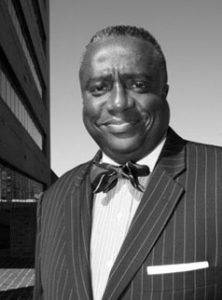 Eric Watson
Eric Watson
Eric Watson is the president & CEO of Carolinas Minority Supplier Development Council and is the former Vice President of the Office of Diversity & Inclusion for Delhaize America. Mr. Watson has devoted more than 30 years working to promote diversity, designing leadership mentoring programs, and establishing accountability systems for business diversity. Mr. Watson has been a keynote speaker; participated on panels; and given lectures on diversity recruiting and talent acquisition; mentoring; diversity and inclusion; cultural competence; African Americans and Hispanics in the workplace; and supplier diversity.
He currently serves as Lead Partner of the UNC Diversity & Multicultural Affairs Corporate Advisory Partners Group and as an advisor to the Cultural Competence Leadership Institute—mentoring and providing UNC students with enriching developmental experiences. He has provided his expertise, time, and resources to developing the Leadership Institute and speaking with students on the importance of inclusion, diversity, and leadership.
 Dr. Victor J. Schoenbach
Dr. Victor J. Schoenbach
While known to many peers and friends as “Vic”, Dr. Victor Schoenbach is an associate professor in the department of epidemiology in UNC’s Gillings School of Global Public Health. Most of his research since 1986 has concerned the health of African Americans, both on a national level and specifically in North Carolina.
In 1990 he worked with Dean William Small to assist the school’s Minority Student Caucus to re-launch its annual Minority Health Conference. He was the first chair of the American College of Epidemiology’s Committee on Minority Affairs and served on its Board of Directors.
Dr. Schoenbach has continued to promote minority advancement through the school’s Minority Health Project broadcasting the conference’s keynote lecture. In recent years, the broadcast has expanded to an interactive web event that reaches a national and international audience as the National Health Equity Research Webcast. This Webcast is one of Diversity and Multicultural Affairs’ largest collaborations with many other campus and external partners and supporters.
In 2012, the Minority Health Conference added a second keynote lecture titled the Victor J. Schoenbach Health Disparities Keynote Lecture. This semester Dr. Schoenbach and UNC Distinguished Alumnus Bill Jenkins are co-teaching a new course titled “Social Justice and Equality – in Search of John Cassel’s Epidemiology.”


